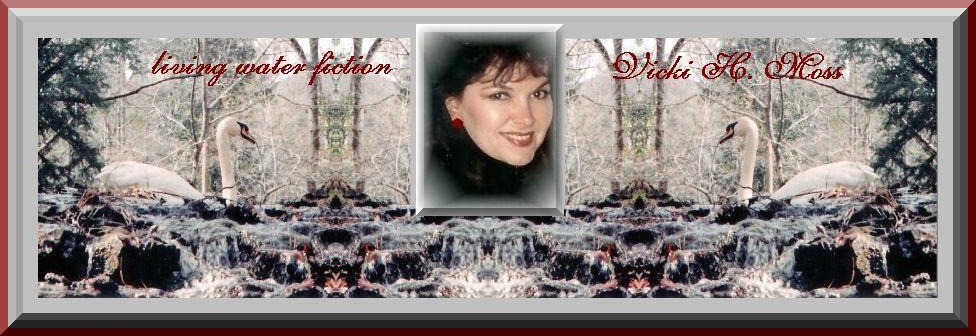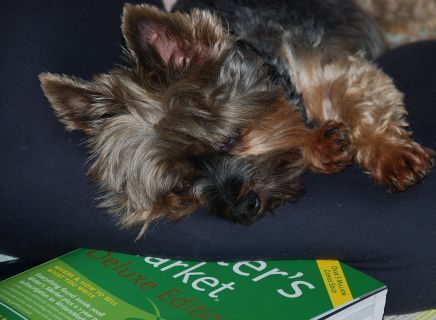You've typed The End on the last page of your novel. You've revised it the umpteenth time and proofread for errors until your eyes have crossed. You've let your masterpiece marinate in a drawer for three months and have taken it out for a fresh look to double check typos one last time. You think it's ready.
It goes to your agent and gets passed on to the publishing house's editor. At last you receive your Advanced Reader Copies (ARC's) to send out. All is good. All is set. Novel is published. You can't fathom why you're getting less than stellar reviews.
Here are ten reasons why readers might decide to give your novel a two star instead of a five star rating and why you should have hired the right freelance editor who catches more than POV, pacing, and character development problems.
1) No matter how many times you go over your novel for errors, you might miss something. You've read over the manuscript so many times, your eyes know what it says and you tend to skip over entire sentences. A fresh pair of eyes double checking behind you is a safe professional bet. The industry has changed, publishing houses are operating with fewer employees, and typos slip through the cracks more than ever. Typos might not instigate a bad review, but they might leave a bad taste in a reader's mouth. First impressions can hook fans for life. And publishing company editors are more than ever depending on authors to catch mistakes in their own ARCs.
2) You've written a thriller that involves a main character firing a weapon, yet your knowledge about hand guns is zilch and you've never practiced loading one or firing one. I had to remind one author to make sure his character had the safety off his weapon before firing at the bad guy. And yes, when practicing worse case scenarios with the SWAT team during simulation, your hands do perspire on the pistol grip. An editor who has spent time on a practice range can help make sure those scenes are authentic.
3) You write a romance novel scene that involves an accomplished rider on a runaway horse. The style of riding is English. An editor who's an experienced equestrian could catch a glitch if a horse scene was improperly written. And I can't tell you the number of books I've read where the author doesn't know how to properly describe a horse's anatomy. This is where I *cringe* for the author. A good way to lose credibility.
4) One scene in a mystery novel takes place underwater and you have your main character recreational scuba diving at 140 feet. Recreational scuba diving usually takes place from 40 feet to 60 feet. Especially for rank beginners. Has your editor ever been certified for scuba diving to spot those techie errors? Can you describe your night dive descriptions with accuracy? I'm pretty sure I was perspiring under water when my flashlight batteries went dead. EEK!
5) Your antagonist takes skydiving lessons with WWII army parachutes before a bank heist to be able to exit from an airplane flying over a national park. Does your editor have experience practicing perfect landing falls (PLF's)to know if you've written the practice scene with accuracy? Skydivers will see through a botched scene if you get the sequence of that PLF roll wrong.
6) Your story takes place on a farm where there's a two hundred-year-old barn and you've described the second floor as having concrete flooring. Does your editor know what year concrete (as we now know it) was first invented? (I caught this in one novel I edited) Does your editor know enough about barns to know that the second floor of a barn-the hayloft--is usually plank/wood flooring unless the barn is built into an embankment and then a concrete floor would be more believable--depending on the geographical location. (Okay, I'll admit I have a barn fetish.)
7) Can your editor spot a weak description of child birth involving intense back labor pains? (How can one forget each and every laborious second?)
8) Can your editor help you enhance scenes describing what it feels like to snow ski (Eastern wet or Western dry snow), water ski, deep sea fish in Hawaii, river fish in the South, and fly fish out West, and hunt with a Harris hawk? (These days, I'm content with a good book and a bag of Pepperidge Farm Raspberry Milano cookies.)
9) Would your editor know if your wild river rafting scene on Georgia's Chattooga River--where the movie Deliverance was filmed--is accurate? The river fluctuates. How does it run for six-man rafts when it's high water level and how does if run when it's low water level? How does one survive a hydro while watching your life flash before you? (There's a trick involved, plus luck, plus holding your mouth just right along with lots of prayer before you launch your raft. Guardian angels are a huge help.)
10) Have you lived enough of life to have experienced the tragic death of someone close to you-pain, love, loss, grief, immense joy-and if you can't quite get those emotions down on paper or the computer, can your editor coach you along-guiding you to write those emotional scenes so as to convince a reader your characters have lived through the authentic moments you're trying to convey?
Assistants and first readers are hired straight from college these days and are usually in their early twenties. Unless those in the industry have experienced a broad range of activities like some of those mentioned above (and many not listed), they won't be as equipped to catch technical/descriptive errors or suggest ways to improve a scene. You can research a subject and find great information--talking with a primary source is even better--but there's nothing like having someone who is also a writer help guide you through the lay of the book land to help polish your baby to be the best it can be to rake in the best reviews.
So, depending on how authentic you want your book to be, you might want to think about hiring a freelance editor before you ship your manuscript off for the book deal. Good first impressions are always desirable.
Comments anyone?


